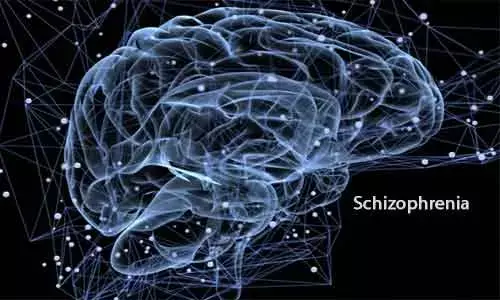- Home
- Medical news & Guidelines
- Anesthesiology
- Cardiology and CTVS
- Critical Care
- Dentistry
- Dermatology
- Diabetes and Endocrinology
- ENT
- Gastroenterology
- Medicine
- Nephrology
- Neurology
- Obstretics-Gynaecology
- Oncology
- Ophthalmology
- Orthopaedics
- Pediatrics-Neonatology
- Psychiatry
- Pulmonology
- Radiology
- Surgery
- Urology
- Laboratory Medicine
- Diet
- Nursing
- Paramedical
- Physiotherapy
- Health news
- Fact Check
- Bone Health Fact Check
- Brain Health Fact Check
- Cancer Related Fact Check
- Child Care Fact Check
- Dental and oral health fact check
- Diabetes and metabolic health fact check
- Diet and Nutrition Fact Check
- Eye and ENT Care Fact Check
- Fitness fact check
- Gut health fact check
- Heart health fact check
- Kidney health fact check
- Medical education fact check
- Men's health fact check
- Respiratory fact check
- Skin and hair care fact check
- Vaccine and Immunization fact check
- Women's health fact check
- AYUSH
- State News
- Andaman and Nicobar Islands
- Andhra Pradesh
- Arunachal Pradesh
- Assam
- Bihar
- Chandigarh
- Chattisgarh
- Dadra and Nagar Haveli
- Daman and Diu
- Delhi
- Goa
- Gujarat
- Haryana
- Himachal Pradesh
- Jammu & Kashmir
- Jharkhand
- Karnataka
- Kerala
- Ladakh
- Lakshadweep
- Madhya Pradesh
- Maharashtra
- Manipur
- Meghalaya
- Mizoram
- Nagaland
- Odisha
- Puducherry
- Punjab
- Rajasthan
- Sikkim
- Tamil Nadu
- Telangana
- Tripura
- Uttar Pradesh
- Uttrakhand
- West Bengal
- Medical Education
- Industry
New analysis method of functional MRI may improve schizophrenia treatment

New York- Researchers have developed tools to improve the analysis of functional magnetic resonance imaging (fMRI) data which may pave the way for improving schizophrenia treatment.This new research is published in NeuroImage Volume 216.
The image analysis method developed by the researchers at the University of Maryland, Baltimore County (UMBC) in the US is called independent vector analysis (IVA) for common subspace extraction (CS).
Their work can assist in diagnosis and treatment of patients with mental illnesses that can be difficult to identify. It can also show medical practitioners whether the current treatments have or have not been working based on image groupings.
Through this method, they were able to categorise subgroups of functional MRI data based solely on brain activity, proving that there is a connection between brain activity and certain mental illnesses, said the study published in the journal NeuroImage.
In particular, they were able to identify subgroups of schizophrenia patients using the functional MRI data that they analysed.
Previously, there was not a clear way to group schizophrenia in patients based on brain imaging alone, but the methods developed by UMBC researchers showed that there is a significant connection between a patient's brain activity and their diagnoses.
"The most exciting part is that we found out the identified subgroups possess clinical significance by looking at their diagnostic symptoms," explained Qunfang Long, a Ph.D. candidate at UMBC.
"This finding encouraged us to put more effort into the study of subtypes of patients with schizophrenia using neuroimaging data."
Their work can assist in diagnosis and treatment of patients with mental illnesses that can be difficult to identify.
It can also show medical practitioners whether the current treatments have or have not been working based on image groupings.
"Now that data-driven methods have gained popularity, a big challenge has been capturing the variability for each subject while simultaneously performing analysis on fMRI datasets from a large number of subjects," said Tulay Adali, Professor at UMBC.
"Now we can perform this analysis effectively, and can identify meaningful groupings of subjects," Adali said.
For further reference log on to:
Medical Dialogues Bureau consists of a team of passionate medical/scientific writers, led by doctors and healthcare researchers. Our team efforts to bring you updated and timely news about the important happenings of the medical and healthcare sector. Our editorial team can be reached at editorial@medicaldialogues.in.
Dr Kamal Kant Kohli-MBBS, DTCD- a chest specialist with more than 30 years of practice and a flair for writing clinical articles, Dr Kamal Kant Kohli joined Medical Dialogues as a Chief Editor of Medical News. Besides writing articles, as an editor, he proofreads and verifies all the medical content published on Medical Dialogues including those coming from journals, studies,medical conferences,guidelines etc. Email: drkohli@medicaldialogues.in. Contact no. 011-43720751


